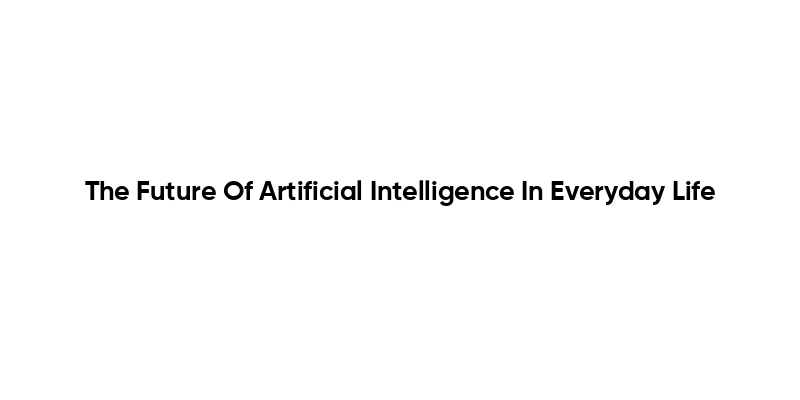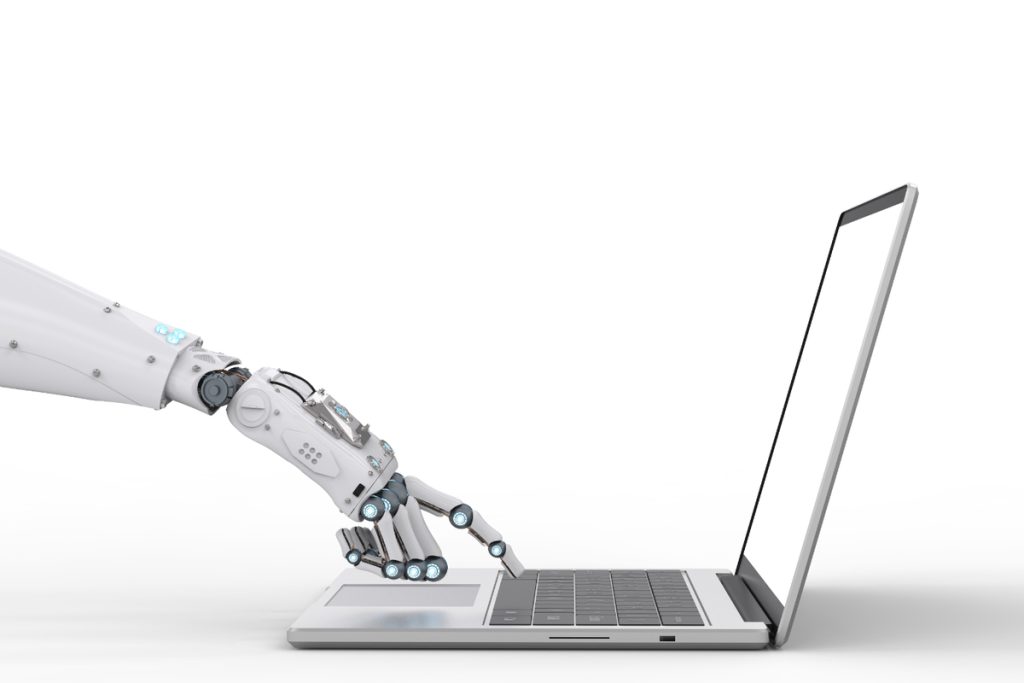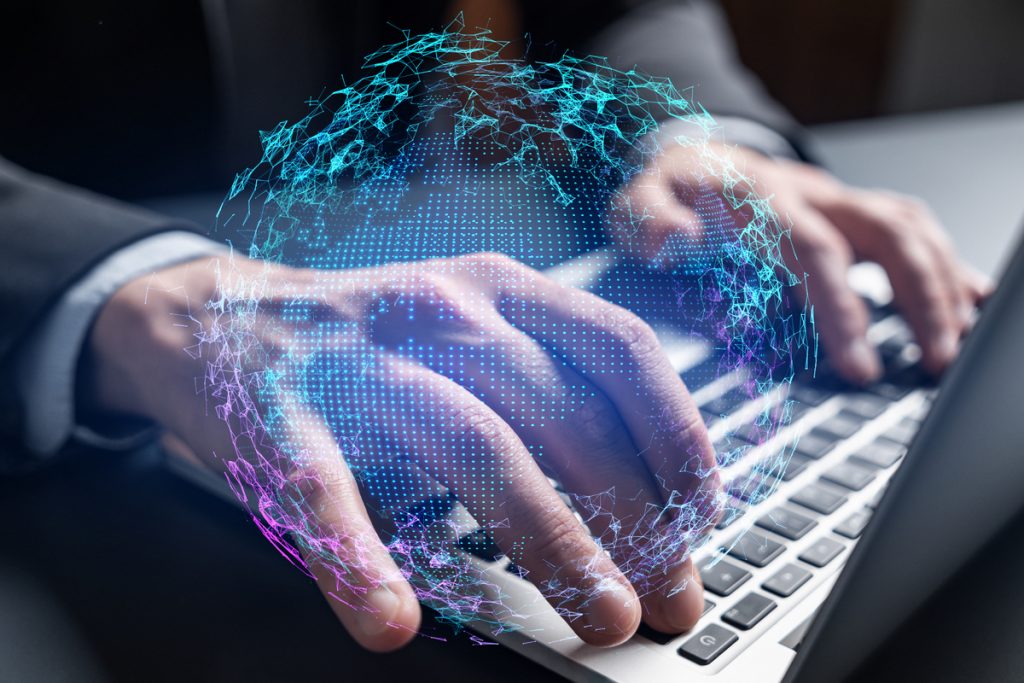As we stand on the brink of a technological revolution, the future of artificial intelligence (AI) in everyday life promises to reshape our world in unprecedented ways. From smart home devices that learn our preferences to AI-driven personal assistants that streamline our daily tasks, the integration of AI into our routines is becoming increasingly seamless. This article delves into the transformative potential of AI, exploring how it can enhance productivity, improve decision-making, and create more personalized experiences in our daily lives.
In the following sections, we will examine the various applications of AI that are already making waves in sectors such as healthcare, education, and transportation. You will learn about the innovative technologies that are not only improving efficiency but also enhancing the quality of life for individuals and communities alike. Furthermore, we will discuss the ethical considerations and challenges that accompany the rise of AI, ensuring that you are well-informed about both the benefits and potential pitfalls of this rapidly evolving field.
As you continue reading, prepare to uncover the exciting possibilities that lie ahead. Whether you are a tech enthusiast or simply curious about how AI will impact your daily life, this article aims to provide valuable insights and inspire you to embrace the future of artificial intelligence. Join us on this journey to explore how AI is set to revolutionize our everyday experiences and what it means for the world at large.
AI in Smart Homes
As technology continues to evolve, smart homes are becoming increasingly common. Artificial intelligence plays a crucial role in automating various household tasks, making life more convenient for residents. Smart devices, such as thermostats, lights, and security systems, can learn user preferences and adjust settings accordingly. This not only enhances comfort but also promotes energy efficiency.
Moreover, AI-powered virtual assistants, like Amazon’s Alexa or Google Assistant, allow users to control their home environment through voice commands. These systems can manage everything from grocery lists to home security, providing a seamless integration of technology into daily routines. As AI continues to advance, we can expect even more sophisticated smart home solutions that will further simplify our lives.
AI in Healthcare
The integration of artificial intelligence in healthcare is revolutionizing patient care and medical research. AI algorithms can analyze vast amounts of medical data, leading to more accurate diagnoses and personalized treatment plans. For instance, machine learning models can identify patterns in patient records that may indicate potential health risks, allowing for early intervention.
Additionally, AI-driven tools are enhancing telemedicine services, making healthcare more accessible. Patients can consult with healthcare professionals remotely, reducing the need for in-person visits. This is particularly beneficial for individuals in rural areas or those with mobility challenges. As AI technology continues to develop, we can anticipate even greater advancements in healthcare delivery and patient outcomes.
AI in Transportation
Artificial intelligence is set to transform the transportation industry, particularly with the rise of autonomous vehicles. Self-driving cars utilize AI algorithms to navigate roads, interpret traffic signals, and make real-time decisions. This technology has the potential to reduce traffic accidents and improve overall road safety.
Furthermore, AI is enhancing public transportation systems by optimizing routes and schedules based on real-time data. This leads to more efficient transit options for commuters, reducing wait times and improving the overall travel experience. As cities continue to grow, the integration of AI in transportation will be essential for creating sustainable and efficient urban environments.
AI in Education
The future of education is being shaped by artificial intelligence, which offers personalized learning experiences for students. AI-driven platforms can assess individual learning styles and adapt educational content accordingly. This tailored approach helps students grasp complex concepts at their own pace, leading to improved academic performance.
Moreover, AI can assist educators by automating administrative tasks, such as grading and attendance tracking. This allows teachers to focus more on instruction and student engagement. As AI technology continues to evolve, we can expect even more innovative solutions that will enhance the educational landscape and prepare students for the future.
AI in Customer Service
Artificial intelligence is revolutionizing customer service by providing instant support and personalized experiences. Chatbots and virtual assistants are increasingly being used to handle customer inquiries, offering 24/7 assistance. These AI systems can quickly resolve common issues, freeing up human agents to tackle more complex problems.
Additionally, AI can analyze customer data to predict preferences and tailor recommendations. This level of personalization enhances customer satisfaction and loyalty, as businesses can better meet the needs of their clients. As AI continues to advance, we can expect even more sophisticated customer service solutions that will redefine the way businesses interact with their customers.
Artificial Intelligence (AI) is rapidly transforming various aspects of our daily lives. This table summarizes the potential future applications and impacts of AI in everyday scenarios.
| Area of Impact | Future Applications | Benefits | Challenges |
|---|---|---|---|
| Healthcare | AI-driven diagnostics, personalized medicine, virtual health assistants | Improved accuracy in diagnosis, tailored treatment plans, 24/7 health monitoring | Data privacy concerns, reliance on technology, potential job displacement |
| Transportation | Autonomous vehicles, smart traffic management, AI-enhanced public transport | Reduced traffic accidents, optimized travel routes, lower emissions | Regulatory hurdles, ethical considerations, technology reliability |
| Education | Personalized learning experiences, AI tutors, administrative automation | Enhanced learning outcomes, efficient resource allocation, accessibility for all | Equity in access to technology, potential reduction in human interaction |
| Home Automation | Smart home devices, AI-powered security systems, energy management | Increased convenience, improved security, energy savings | Privacy issues, dependency on technology, potential for hacking |
| Workplace | AI-driven analytics, virtual assistants, automated customer service | Increased productivity, better decision-making, enhanced customer experience | Job displacement, need for reskilling, ethical use of AI |
As AI continues to evolve, it is essential to address the challenges it presents while harnessing its potential to improve our everyday lives.



